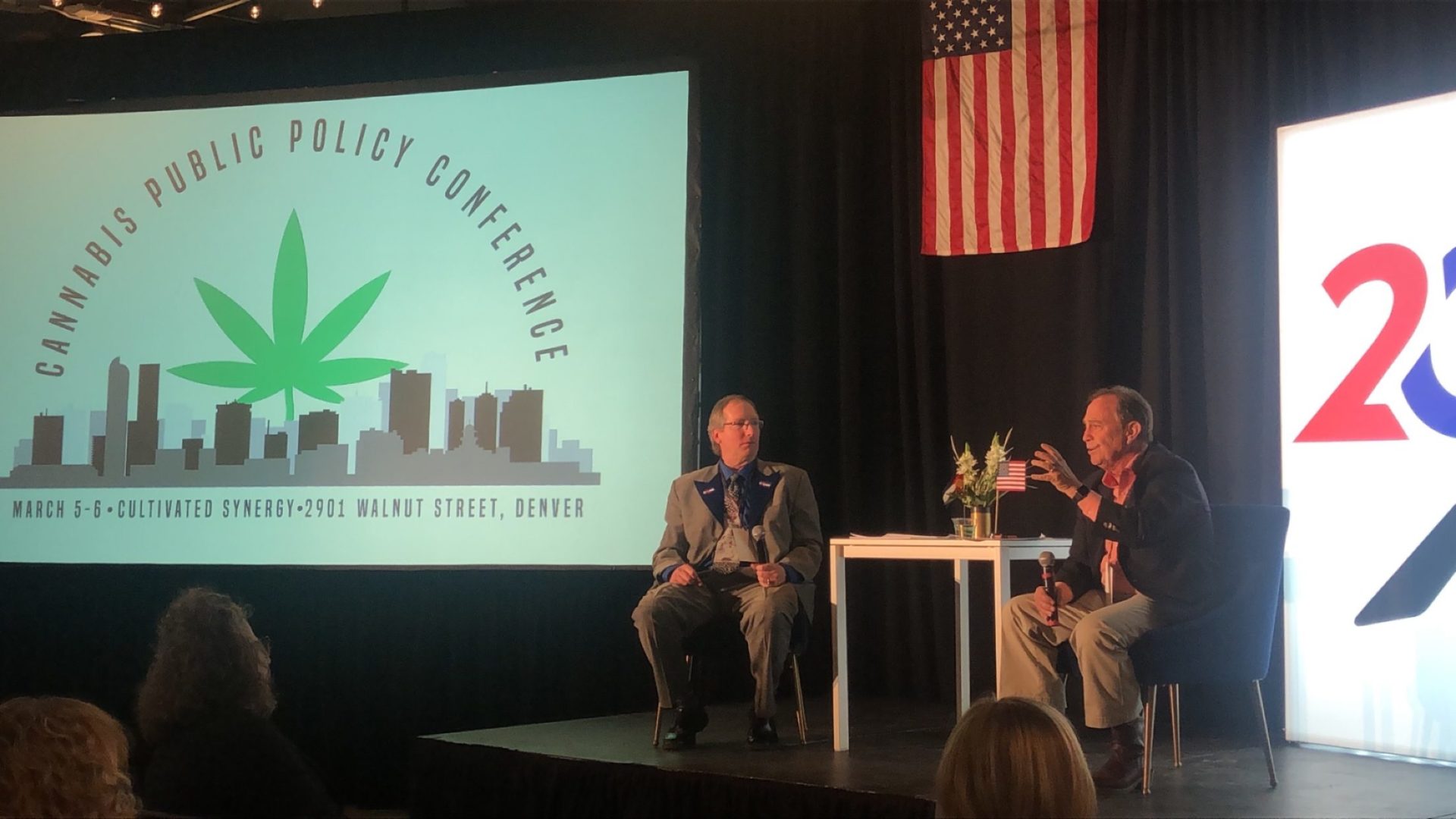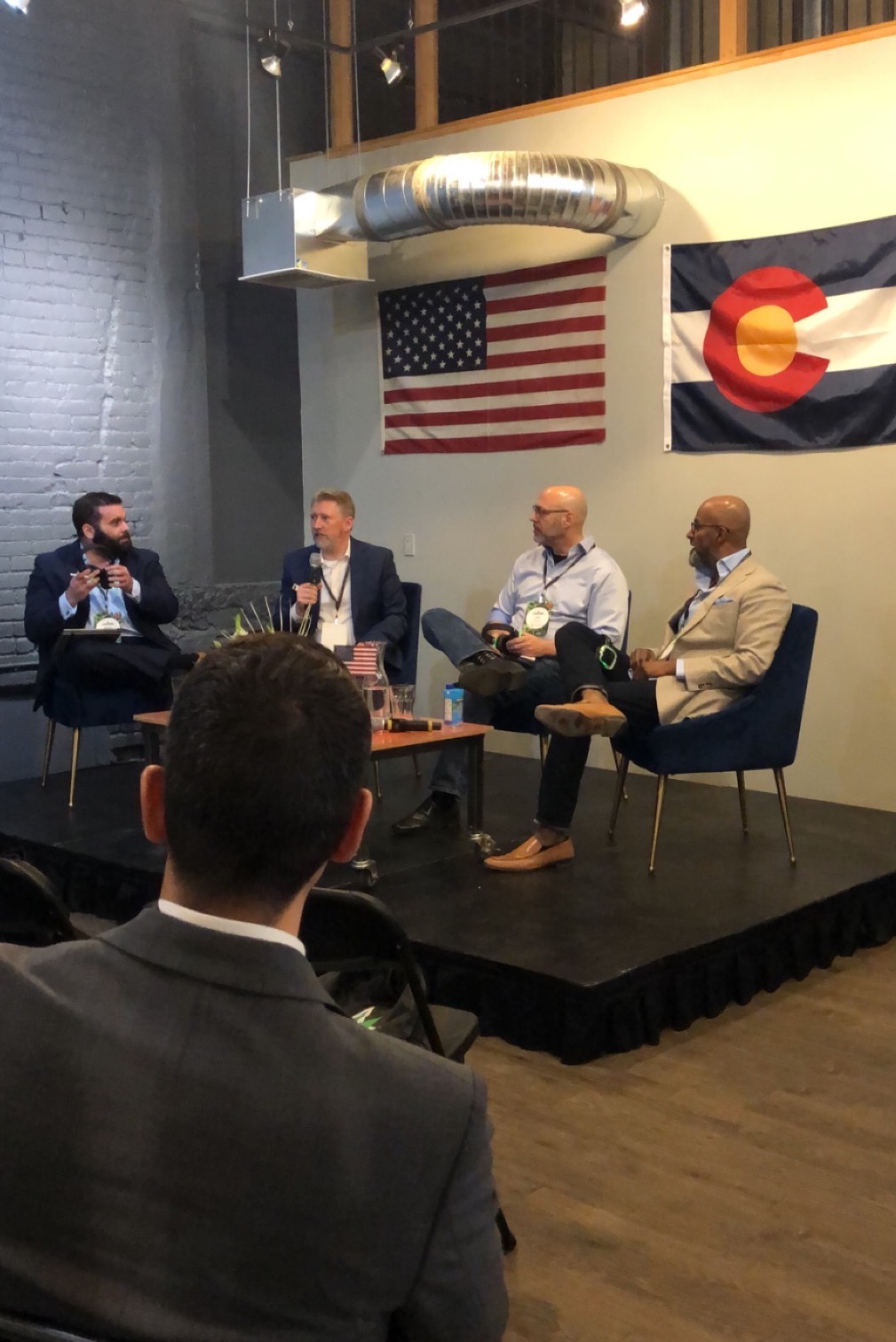On March 5 and 6, Simplifya was proud to sponsor a policy conference in Denver, and it was well worth the money! In attendance were: CEOs, lawyers, branding specialists, chemists, master growers, regulators, Legislators, GOVERNO– okay Jared Polis was supposed to come but he had to cancel in order to announce the first Colorado cases of COVID-19 (stupid plague ruining everyone’s plans). But suffice it to say, there were a lot of big brains in that room with a lot of knowledge to share. I took over 20 pages of notes, but my editor won’t let me publish that much information– Luke, no one wants to read about how you wish you were as cool as Wanda James; maybe pare it down a bit— so I’ve painstakingly extracted my top takeaways from the conference so you can learn a little bit of what we learned.
Cannabis Policy on Social Equity

Alright, hard truths first! As anyone who knows the industry will tell you, we are behind on social equity, and we may be too late to catch up. In fact, Rosalie Flores, one of the panelists went so far as to say we
should abandon the term social equity because at this point, equity is unattainable. She opts for the term “social opportunity.” Reserving licenses for social equity applicants doesn’t seem to be working; there is too much red tape for those who actually qualify for them, and there are too many people skewing their applications in order to obtain them.
The panel says we need to be doing automatic expungement everywhere– not just record sealing, and not just by application. When a record is sealed, employers won’t see your conviction/charge, but it is still on your record. Government agents can still see it. Denver and Boulder have record sealing clinics by application only, while San Francisco took the automatic-expungement route. Guess what? Of the estimated 17,000 people who are eligible in Colorado, just over 70 have successfully sealed their records.
San Francisco, on the other hand, wiped out 9,400 records with a wave of their expungement wand. One of these systems is clearly superior to the other, but I’ll leave that to the reader to figure out. Besides, why are we placing the onus on citizens to do all the legal research and legwork? They’re the ones who were wronged in the first place. The other panelist, Art Way, even took it a step further, arguing that we need to abandon marijuana exceptionalism and expunge the records of every victim of the war on drugs.
The other option we can use to expand social opportunity is cutting red tape. Cannabis is one of the most regulated industries out there and every regulation costs time and money in addition to the less direct barriers that come with knowledge of the law and network connections to those in power. Granted, this route would give us at Simplifya a little less work, but I’m sure we can take the hit, especially if it expands opportunity and diversity in our industry.
In a second panel that included Wanda James of Simply Pure, and John Bailey of the Black Community Cannabis Equity Initiative, many agreed that the current industry leaders, who are predominantly white and male, could be doing more than simple lip service to improve the situation. We are hopeful that the MED’s forthcoming accelerator program will give established business owners a chance to do just that.
Cannabis Policy on Vaping
Another theme that dominated cannabis recently is the so-called vaping crisis— the official term is EVALI. This was a fascinating panel where they really got into the details of vaping. Gregory Conley of the American Vaping Association brought his unique perspective which encapsulated both the nicotine and THC sides of things. He was the most vocal, but the panel was generally in agreement that most state governments did not handle this issue well. The victims of EVALI were widely shown to be consuming illicit market (see, unregulated) vapes and e-cigs and so the response should have been a crackdown on illegal vapes and a ban on the use of Vitamin E Acetate, MCT oil, and polyethylene glycol (PEG) as cutting agents. Which is exactly what Colorado did.
Unfortunately, many other states did not follow this logic; some banned artificial flavors, some banned all flavors, and some just banned vaping altogether. These approaches were reactionary, overbroad, and may have even worsened the crisis by driving more vape users into the illegal market. The panel also pointed out that only one governor took the crisis as an opportunity to argue for legalizing and regulating cannabis products.
Even though the panelists agreed that the crisis was massively mishandled, they also agreed that there is a silver lining that will manifest in increased focus on GMP (Good Manufacturing Practices) and tracking the sources for your ingredients. They also expect to see the advent of expiry dates on vape carts, and emissions testing for devices that utilize heating elements.
The main thing I took away from this was that you should pay attention to the materials that make up the vape itself– rather than just the ingredients in your vape juice or concentrate. Make sure the boiling point of your materials are substantially higher than the temperature you’re heating it to, otherwise you’ll be inhaling the metals in addition to your vaped product. They listed a lot of safe materials, but titanium, quartz, and ceramic were definitely among those mentioned as particularly low-risk.

… So Much Other Stuff!
-

Our CEO, Marion (far right), on a pitch panel. Our VP of Marketing and PR, Amy Larson, explained how important it is to have a crisis communications plan in place before a crisis actually occurs. NCIA has a manual available to you for free!
- Our CEO who is also a prolific startup investor heard pitches on fixing the microplastic problem with hemp cellulose, coworking spaces for cannabis, and CBD for veterinarians.
- We learned about marketing strategies and pitfalls in a world where the main social media platforms are off limits for the cannabis industry.
- We learned about cannabinoid manufacturing, and clinic research. We have so much more to learn about this plant and are really only scratching the surface at this point.
- Delivery and Social Consumption will both take longer to become reality in Colorado than consumers would like. Licensing processes, local approvals, and experimentation with business models all still need to be sorted out.
- Access to banking remains a massive gap in the cannabis industry. But a few brave (at least brave for bankers) credit unions are starting to step up, while others are discovering the wonders of blockchain.
- U.S. Rep. Ed Perlmutter (D-CO) is still plugging away at the SAFE Banking Act and believes that it’s passage will open the floodgates for all the other legislative solutions our industry craves.
- We also heard about the future of packaging and labeling, hemp, and sustainability.
I could honestly write a separate blog post on each one of these topics, but alas, our SEO starts to drop off around 1000 words. Stay tuned though, because I might be able to convince the powers that be to let me write some more…otherwise we’ll just have to catch you at the next conference!
